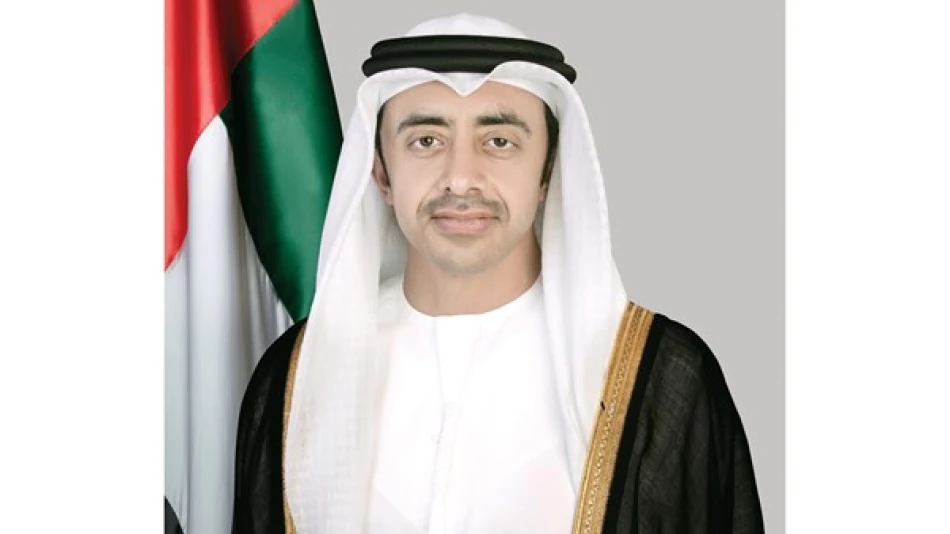
UAE's FM Discusses Bilateral Ties, Wildfire Developments with Montenegrin PM
UAE Offers Emergency Support to Montenegro as Forest Fires Ravage Balkan Nation
The United Arab Emirates has pledged immediate assistance to Montenegro as devastating forest fires continue to spread across multiple regions of the Balkan country. The commitment came during a high-level diplomatic call between UAE Foreign Minister Sheikh Abdullah bin Zayed Al Nahyan and Montenegrin Prime Minister Milojko Spajić, highlighting the UAE's expanding humanitarian diplomacy in Southeast Europe.
Diplomatic Outreach Amid Crisis
During the telephone conversation, Sheikh Abdullah expressed the UAE's solidarity with Montenegro during these exceptional circumstances and confirmed the nation's readiness to provide necessary support and assistance to mitigate the impact of the ongoing fires. The discussion also covered broader bilateral relations and opportunities to enhance cooperation that serves both countries' mutual interests.
The UAE Foreign Minister emphasized the distinguished relations between the two nations while extending wishes for Montenegro's continued safety and prosperity.
Strategic Context of UAE's Balkan Engagement
This emergency response offer reflects the UAE's broader strategy of expanding diplomatic and economic ties across the Balkans, a region increasingly viewed as a gateway between Europe and the Middle East. Montenegro, despite its small size with just 630,000 residents, occupies a strategically important position along the Adriatic coast and serves as a potential bridge for Gulf investment into European markets.
Pattern of Humanitarian Diplomacy
The UAE's quick response to Montenegro's crisis follows a well-established pattern of using disaster relief as a tool for building international relationships. Similar to its rapid assistance during natural disasters in Turkey, Lebanon, and various African nations, the Emirates leverages its logistical capabilities and financial resources to strengthen diplomatic ties while demonstrating regional leadership.
Regional Fire Crisis and Climate Implications
Montenegro's current wildfire situation reflects broader environmental challenges facing the Mediterranean region, where rising temperatures and prolonged drought conditions have created tinderbox conditions. The country's mountainous terrain and limited firefighting resources make international assistance particularly valuable during such emergencies.
For the UAE, offering support in environmental disasters also aligns with its public commitments to climate action and its hosting of COP28, positioning the nation as a responsible global actor despite its oil-dependent economy.
Economic Opportunities Behind Humanitarian Gestures
While the immediate focus remains on emergency assistance, this engagement likely serves longer-term economic interests. Montenegro has been seeking foreign investment for infrastructure development, particularly in tourism and energy sectors. The country's 2017 membership in NATO and its EU accession negotiations make it an attractive partner for Gulf states looking to diversify their European relationships beyond traditional Western European capitals.
The timing of this outreach suggests the UAE recognizes Montenegro's potential as both a strategic partner and investment destination, using humanitarian diplomacy to lay groundwork for future economic cooperation in a region where Chinese and Russian influence has been significant.
Most Viewed News

 Layla Al Mansoori
Layla Al Mansoori






